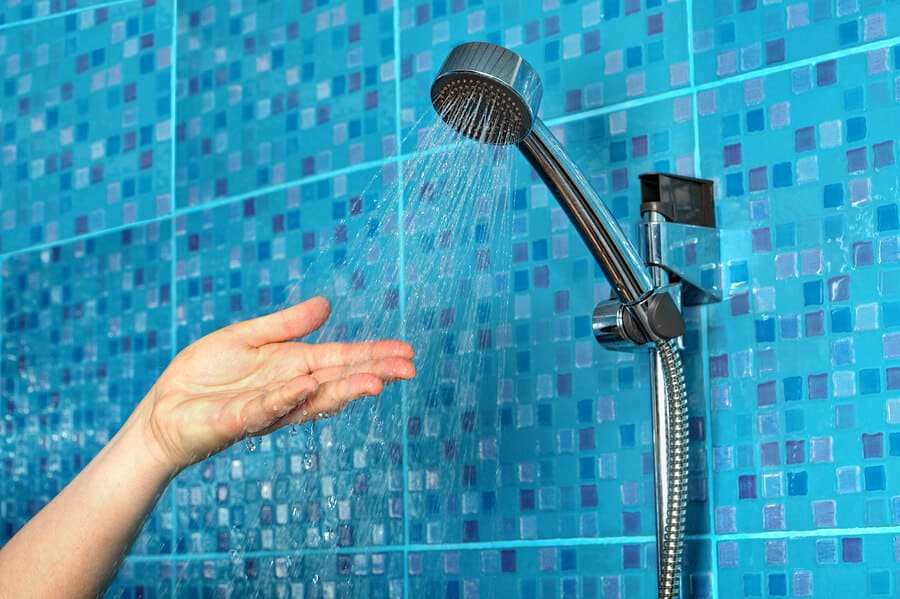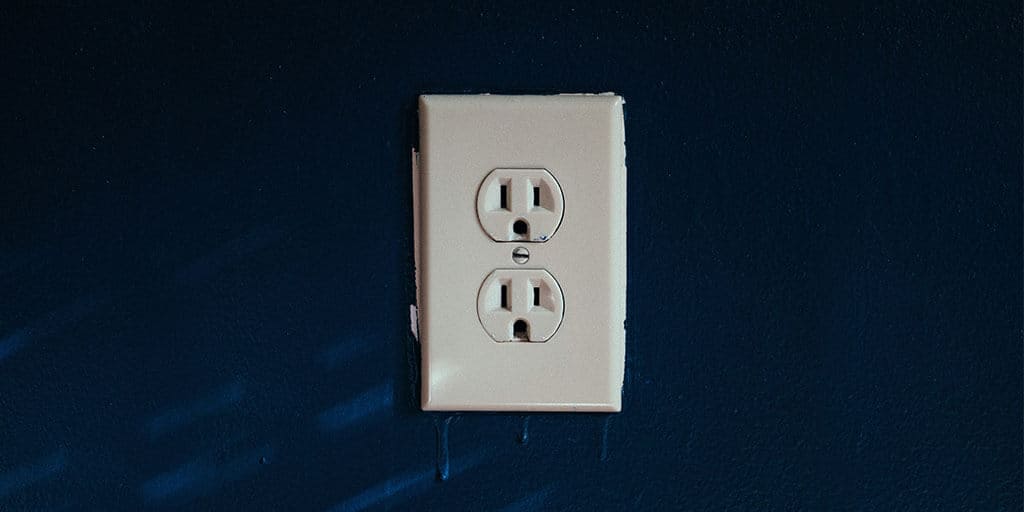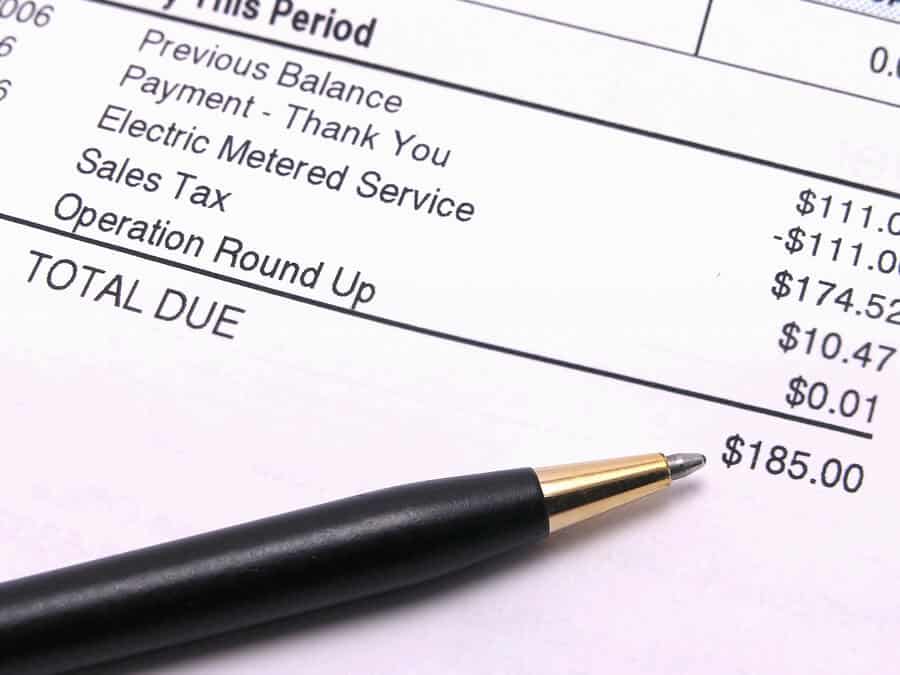Ways To Help Save on Your Utility Bill
In today's world, where the cost of living seems to be constantly on the rise, finding ways to save on utilities has become a top priority for many of us. As someone who is diligent about managing my finances efficiently, I understand the importance of cutting down on expenses, especially when it comes to utility bills. I have made it my mission to explore various strategies that can help me reduce my utility expenses without compromising on my comfort.
One of the areas where I have focused my efforts is reducing my electricity consumption. I have taken the time to educate myself on energy-efficient practices and have implemented them into my daily routine. For example, I have replaced traditional incandescent light bulbs with energy-saving LED bulbs throughout my home. This small change has made a significant difference in my electricity bill.
How To Save on Utilities Bills
Saving on utility bills is a goal for many households, and there are several effective strategies to achieve this. Start by identifying areas where energy or water waste may be occurring, such as leaky windows or appliances. Sealing these gaps and fixing any leaks can significantly reduce utility expenses. Additionally, upgrading to energy-efficient appliances and using programmable thermostats can optimize energy usage. Simple actions like shortening shower times, washing clothes in cold water, and air-drying laundry can conserve water and lower costs.
Here are 5+ answer to How To Save on Utility bill that works:
Improve Seals for Windows, Appliances, and Doors:
Don't let energy sneak out of your home through poor seals. Take a close look at your windows, fridge, freezer, doors, and other potential areas where air might escape. A well-sealed fridge and freezer will ensure that the cold air remains inside, just as tightly sealed doors and windows will prevent drafts and heat loss. Investing in weatherstripping or caulk can be a cost-effective solution to improve seals and save on utility bills.
Address Leaky Ducts to Prevent Energy Waste:
Leaky ducts may seem insignificant individually, but their cumulative effect can lead to substantial energy waste. Check your heating ducts, ventilation ducts, and AC ducts for any signs of leakage. Even small leaks can impact the overall efficiency of your HVAC system. Hire a professional to conduct a thorough inspection and have them patch up any leaks or gaps to optimize your system's performance.
Harness the Power of Programmable Thermostats:
Take advantage of the advanced features offered by modern programmable thermostats. These devices are more intelligent and affordable than ever before. By investing in a programmable thermostat, you can customize temperature settings based on your schedule. For instance, you can program the thermostat to lower the temperature by 10-15 degrees when you're asleep or away from home. This simple adjustment can result in significant savings on your annual heating and cooling costs. Hive's smart thermostat is an excellent example of a device that combines functionality and energy efficiency.
Trim Shower Time for Water Conservation:
It may be surprising, but reducing your shower time by just two minutes can make a substantial difference in water usage. On average, this can save approximately ten gallons of water per shower. Encourage everyone in your household to be mindful of their shower duration to conserve water and lower their water bills. Installing a low-flow showerhead can further enhance water efficiency while maintaining a satisfying shower experience.

Upgrade to Water-Efficient Showerheads:
One effective method to reduce water consumption and subsequently lower your utility bills is by replacing your old showerhead with a more efficient model. By doing so, you can potentially save up to 2,700 gallons of water annually. Several excellent options for water-saving showerheads are available on the market, offering features like aerated sprays or flow restrictors to maintain a satisfying shower experience while conserving water.
Opt for Cold Water Washing:
While washing laundry in warm or hot water may be necessary at times, whenever possible, opt for cold water washes. Heating water accounts for a significant portion of energy consumption during laundry. By switching to cold water washes, you can reduce energy usage and contribute to cost savings on your cut electric bill by 75 percent.
Embrace Energy-Efficient Lighting Solutions:
Both Compact Fluorescent Lamps (CFLs) and Light Emitting Diodes (LEDs) offer superior energy efficiency compared to traditional incandescent bulbs. Consider replacing your old bulbs with CFL or LED alternatives to reduce electricity consumption. LEDs, in particular, are highly regarded for their longevity, durability, and energy-saving capabilities. Explore various options in these categories to find the ideal lighting solution for your home.
Time Your Energy Usage Wisely:
Utility companies often impose higher rates during peak hours, typically occurring during the day when the demand for electricity is at its highest. To optimize your energy consumption and lower costs, consider running high-power appliances like dishwashers and washing machines during off-peak hours, such as late evenings or early mornings. By shifting your usage to non-peak times, you can take advantage of lower rates and maximize energy efficiency.
Embrace Air-Drying for Clothes:
The energy demand of running a dryer for a single 60-minute cycle should not be underestimated. Even with energy-efficient models, which are certainly worth considering, drying clothes consumes a substantial amount of energy. During the warmer months, when weather conditions allow, take advantage of nature's free gift of sunshine and fresh air. Consider hanging your clothes outside to dry. Not only will this help reduce your electricity usage, but it will also infuse your clothes with a delightful outdoor scent.
How to Save Money on Utilities in An Apartment
Saving money on utilities in an apartment requires a proactive approach and conscious effort to make energy-efficient choices. Start by adjusting your thermostat to more moderate temperatures and using natural ventilation whenever possible. Replace traditional incandescent light bulbs with energy-efficient LED bulbs, and be mindful of turning off lights and electronics when not in use. Implement water-saving practices, such as taking shorter showers and fixing any leaky faucets. Use window coverings to regulate indoor temperature and prevent heat loss or gain.
Consider using power strips to easily turn off multiple electronics at once and minimize standby power. Lastly, communicate with your landlord about any maintenance issues, such as leaky pipes or drafty windows, that could contribute to excessive energy usage. By being mindful of your energy consumption and taking proactive steps, you can effectively save money on utilities while living in an apartment.

How to Save Money on Electric Bill
Saving money on your electric bill is a smart and practical way to reduce household expenses. There are several strategies you can implement to achieve this goal. Start by ensuring your home is well-insulated and sealed to prevent energy leakage. Replace old, inefficient appliances with energy-efficient models and consider using power strips to easily turn off multiple devices at once.
Opt for energy-saving practices such as washing clothes in cold water, air-drying laundry, and adjusting your thermostat to conserve energy when you're not at home. Additionally, using natural light whenever possible and switching to LED or CFL light bulbs can significantly reduce electricity usage. By adopting these energy-saving habits, you can make a noticeable impact on your electric bill and enjoy the financial benefits of a more efficient home.
Tips for Saving Money on Transportation
Transportation costs can take a significant toll on your budget, but with careful planning and smart choices, you can effectively reduce your expenses while getting around. Here are some detailed tips to help you save money on transportation:
Use Public Transportation
Utilize the extensive public transportation networks available in your area. Buses, trains, trams, and subways offer cost-effective alternatives to driving. Look for monthly or annual passes that provide discounted rates compared to daily ticket purchases. Take advantage of park-and-ride facilities to further reduce parking expenses.
Carpool or Ride-share
Join carpooling programs or organize rides with colleagues, neighbors, or friends who have similar commutes. Sharing rides allows you to split fuel and parking costs, significantly lowering your transportation expenses. Explore ride-sharing services like Uber or Lyft for additional cost savings.
Optimize Vehicle Maintenance
Regular vehicle maintenance is crucial for optimal fuel efficiency and cost savings. Keep up with scheduled maintenance tasks, such as oil changes, tire rotations, and air filter replacements. Well-maintained vehicles run more efficiently, consume less fuel, and reduce the risk of costly repairs.
Practice Fuel-Efficient Driving Habits
Adopt fuel-efficient driving techniques to maximize your mileage and minimize fuel consumption. Avoid rapid acceleration and harsh braking, as these actions waste fuel. Maintain a steady speed on highways, and use cruise control when appropriate. Minimize idling time by turning off the engine if you anticipate a wait longer than a minute.
Plan Efficient Routes
Before embarking on your journey, plan your route to avoid unnecessary detours, traffic congestion, and roadwork. Utilize GPS navigation or traffic apps to find the most efficient and time-saving routes. By minimizing travel distance and time, you can save both fuel and precious time.
Consider Alternative Transportation Modes
For short distances, consider alternative transportation modes like cycling, walking, or using a scooter. These options not only save money on fuel costs but also promote physical activity and contribute to a greener environment. Invest in a reliable bicycle or use bike-sharing services available in your city.
Combine Errands
Efficiently plan your errands and appointments to minimize the number of trips you need to make. Grouping multiple tasks together allows you to accomplish more while reducing fuel consumption and saving time. Create a list and prioritize tasks based on location and timing.
Monitor Fuel Prices
Stay informed about fuel prices in your area and take advantage of stations with lower prices. Use smartphone apps or websites that track fuel prices to find the cheapest options. Consider joining loyalty programs offered by fuel providers to access additional discounts or rewards.
FAQs
How can I make my bills cheaper?
To make your bills cheaper, there are several strategies you can implement. Start by assessing your current bills and identifying areas where you can reduce consumption. Consider implementing energy-saving practices such as turning off lights when not in use, unplugging electronics when not in use, and adjusting your thermostat to a more energy-efficient setting.
Additionally, explore options for bundling services or switching to more affordable providers for utilities such as internet, cable, or phone. Conservation efforts, such as using natural lighting during the day and line-drying clothes instead of using a dryer, can also help reduce bills. Finally, regularly review your bills to identify any errors or unnecessary charges and contact your service providers to address them. By adopting these strategies and being mindful of your consumption, you can effectively make your bills cheaper.
How can I be frugal with utilities?
Being frugal with utilities involves adopting mindful habits and implementing energy-saving measures. Start by reducing unnecessary consumption, such as turning off lights and appliances when not in use, and using energy-efficient light bulbs and appliances. Adjust your thermostat to an optimal setting and use natural ventilation whenever possible. Regularly maintain your appliances and systems, ensuring they are running efficiently and not wasting energy.
Use timers or smart plugs to control the usage of electronics and appliances. Be mindful of water usage by fixing leaks promptly and practicing water-saving habits, such as taking shorter showers and using efficient showerheads. Lastly, educate yourself about available utility plans and consider switching to more cost-effective options. By implementing these frugal practices, you can significantly reduce your utility expenses.
What should I turn off to save electricity?
To save electricity, there are several things you can turn off when not in use. Start by switching off lights in empty rooms or areas of your home. Unplug electronic devices and appliances that are not in use, as they can still consume energy when plugged in. This includes items like chargers, TVs, computers, and kitchen appliances. Turn off fans, air conditioners, or heaters when you leave a room or when they are not needed.
Consider using natural lighting during the day instead of relying on artificial lights. Also, turn off power strips or surge protectors that supply power to multiple devices when they are not in use. By being mindful of what is consuming electricity and actively turning off or unplugging unnecessary items, you can effectively reduce your electricity usage and lower your energy bill.
How can I lower my electric bill in Florida?
To lower your electric bill in Florida, there are several strategies you can implement. Start by optimizing your air conditioning usage, as this is a significant contributor to electricity consumption in a hot climate. Set your thermostat to a higher temperature or use programmable thermostats to adjust the temperature when you are away from home. Utilize ceiling fans to improve air circulation and reduce the need for excessive cooling.
Keep doors and windows properly sealed to prevent cool air from escaping and hot air from entering. Use natural light whenever possible and switch to energy-efficient lighting options such as LED bulbs. Be mindful of other energy-consuming appliances and devices by turning them off when not in use and using power strips to easily cut power to multiple devices. Consider upgrading to energy-efficient appliances and ensuring they are properly maintained. By combining these strategies and being mindful of your electricity usage, you can successfully lower your electric bill in Florida.
Summary of How To Save on Utilities Bills
Finding ways to save on utilities is not only a practical approach to managing finances but also a personal commitment to living a more sustainable lifestyle. As someone who is diligent about managing my budget efficiently, I have embraced various strategies to reduce my utility expenses without compromising my comfort.
Through careful consideration and conscious choices, I have implemented energy-saving practices in my daily routine. From using energy-efficient light bulbs to adjusting my thermostat and being mindful of water consumption, every small change has made a significant impact on my utility bills. By adopting a frugal mindset and optimizing my energy usage, I have not only achieved financial savings but also contributed to a greener environment.
Managing utility bills requires ongoing commitment and awareness, but the rewards are worth it. By making these changes, I have gained a sense of empowerment and control over my finances. I take pride in knowing that I am actively taking steps to reduce my environmental footprint while maximizing my financial stability.
Sources:
https://thriftenergy.org/home-energy-saving-tips/its-summertime/
https://www.epa.gov/energy/energystar-consumer-tips-save-energy-and-money

